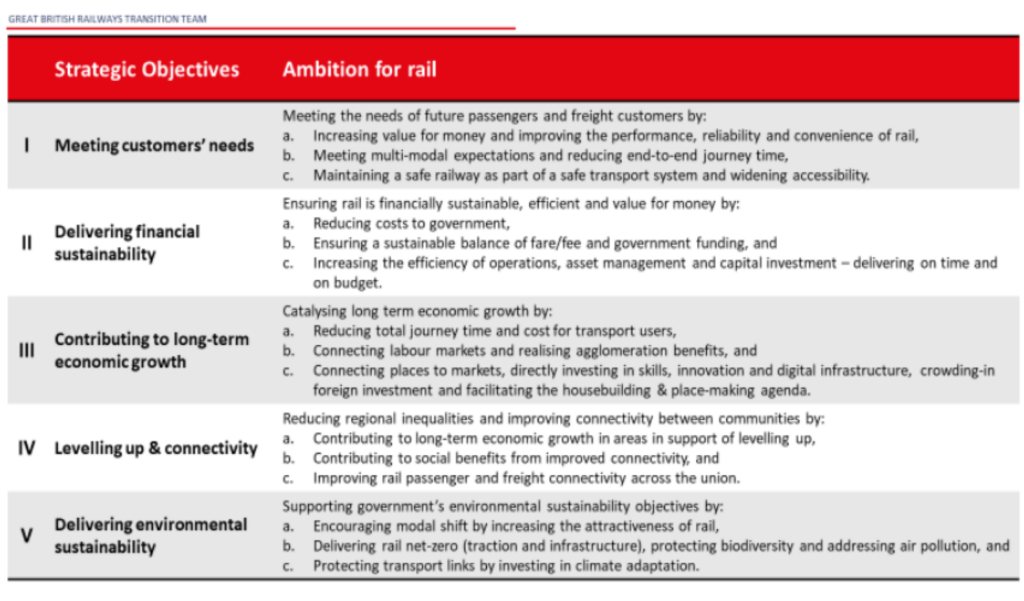Snow1964
Established Member
Invitation for views within and beyond rail sector

 www.gov.uk
www.gov.uk
Link to Consultation
 gbrtt.co.uk
gbrtt.co.uk
closing date 4th February 2022
This call for evidence, launched by the Great British Railways Transition Team, seeks responses from all those with an interest in the long-term future of the railway. We are inviting views from within and beyond the rail sector, to inform the development of a whole industry strategic plan, the first 30-year strategy.
The Secretary of State for Transport commissioned the whole industry strategic plan. It will set 5 long-term objectives for the railway, focusing on:
- meeting customers’ needs
- delivering financial sustainability
- contributing to long-term economic growth
- levelling up and connectivity
- delivering environmental sustainability

Whole industry strategic plan for rail: call for evidence
Invites responses on how rail can support long-term national objectives to inform the development of a 30-year strategic plan for the rail industry.
Link to Consultation
UK Government Web Archive
This Page is [ARCHIVED CONTENT] and shows what the site page https://gbrtt.co.uk/ looked like on 12 Mar 2025 at 11:18:29
closing date 4th February 2022

